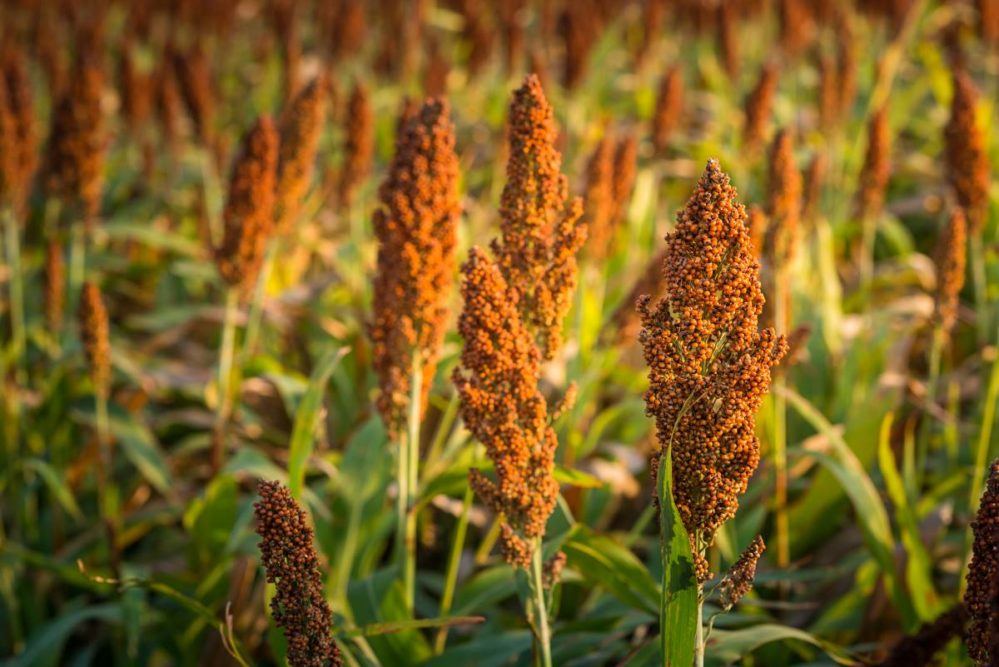KANSAS CITY – Three separate research projects are exploring sorghum, an ancient grain known for its ability to resist drought. A project funded by the United Sorghum Checkoff Program will seek to maximize the sorghum crop by determining effective trait combinations for different environments. Research at the Donald Danforth Plant Science Center in St. Louis will investigate the gene networks underlying the stress resilience in sorghum, and research conducted at the Nebraska Food for Health Center in Lincoln focused on how sorghum affects the human gut microbiome.
Krishna Jagadish, PhD, a professor in the Department of Plant and Soil Science at Texas Tech University in Lubbock, Texas, received $1.6 million in funding from the United Sorghum Checkoff Program in partnership with Texas A&M University, Kansas State University, US Department of Agriculture locations in Lubbock and Manhattan, Kan., and industry partners. The five-year project will seek to develop trait-based sorghum hybrids specifically targeted to thrive in water-deficient areas considered favorable for growing sorghum.
“The project brings together major public sorghum improvement programs in the US,” Dr. Jagadish said. “The trans-disciplinary team aims to achieve the project goals by integrating agronomy, crop physiology, breeding, machine learning, and crop and climate modeling.”
The three-year, $2.7 million project at the Donald Danforth Plant Science Center has received support from the US Department of Energy’s Genome-Enabled Plant Biology Program. The project will seek to define the functions of critical genes in sorghum and how they are regulated.
“There is extraordinary genetic diversity underlying sorghum’s adaptation to stressful environments, and we want to tap into this in a precise way to inform engineering and breeding strategies for future climates,” said Andrea Eveland, PhD, associate member at the center. “We have little understanding of what most of the 30,000-plus genes in the sorghum genome do and whether functionally conserved genes have unique control mechanisms in drought-adapted sorghum. This information could help efforts to make other crops more stress resilient, too.”
Researchers at the Nebraska Food for Health Center have demonstrated natural genetic variation within crop plants may play a role in controlling the growth of specific organisms in the human gut microbiome. In a study published online Sept. 26 in Nature Communications they used sorghum, which has a large number of bioactive models that stimulate cells in the body, including microbes in the gut. Researchers had access to 294 different kinds of sorghum. Qinnan Yang, PhD, a scientist at the center, made flour from each kind of sorghum. An automated system measured the impact of flour from each kind of sorghum on the human gut microbiome.
Dr. Yang in two cases noticed the same region of the sorghum genome that caused major changes in the human gut microbiome also controlled differences in the color of sorghum seeds and sorghum flour. Two parts of the genome contained two genes, called Tan1 and Tan2, that control production of condensed tannins, a group of compounds that add flavor to red wine and dark chocolate.
Sorghum varieties with intact versions of both the Tan1 and Tan2 genes had dark-colored seeds and stimulated growth of microbes, including Faecalibacterium, Roseburia and Christensennella. Many studies have shown the organisms may help prevent conditions such as inflammatory bowel disease. Other sorghum varieties with mutations in either gene produced light-colored seeds that failed to stimulate growth.
“It really isn’t just about tannin or even sorghum,” Dr. Yang said. “Now that we’ve shown plant genes can control changes in the human gut microbiome, we can use our approach screen hundreds or thousands of samples of different crops. That makes it possible for plant breeding programs to harness natural genetic variation in crops to breed new crop varieties that improve human health by promoting beneficial bacteria in the human gut.”




